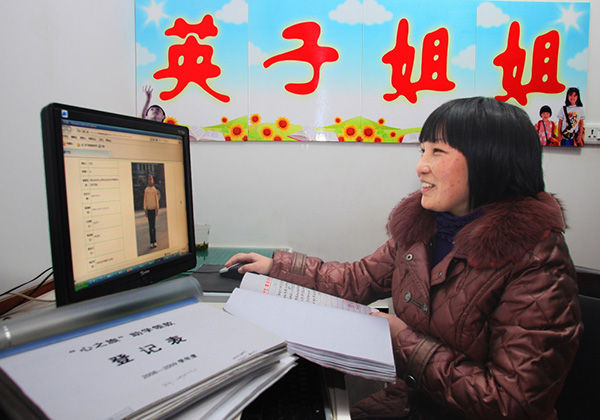The finishing school


Life story
Born in Moshi town, Changyang county, Hubei province, Liu Faying graduated from a teachers-training school in 1991. Her father believed "young people should experience more things" and asked her to apply for work in remote areas. As a result, she was appointed to work as a teacher in the poor mountainous village Huangbaishan that year.
She taught all subjects except for Chinese there. Since the school was really remote and students had to spend a long time getting to school, Liu was required to work for 10 days in a row before taking a break of four days. She returned home once a month.
"The village was very short of resources. The people were very poor, but they could not buy the things they wanted even if they had money. You could not find a vegetable market or barbershop there," says Liu.
She remembers that the school canteen could only offer hot water, but no food, to teachers. Instead, every teacher was allotted a piece of land to grow vegetables for their daily meals, and they had to cook for themselves.
"I could not grow vegetables at the very beginning, so I had to eat noodles every day, mixed with lard oil or thick broad-bean sauce I brought from home."
The electricity often failed and Liu grew afraid of the dark.
"We had to walk a long way to get to the toilet. Sometimes I went there at night with a kerosene lamp in my hand. But the wind often blew out the lamp and I was extremely frightened.
"I was famous for crying all the time. I cried when I was hungry, and when I was too afraid of darkness to sleep at night," says Liu.
Her students and their parents noticed her situation, and offered her a helping hand. The parents there taught her how to grow vegetables and often asked their children to take food to Liu. Female students accompanied her when she slept so that she would no longer feel afraid.
"We got on really well. My students were so kind to me," says Liu, who stayed in the village for more than 11 years.
Liu says she is grateful for the impoverished students' help, and she helped them in return, buying clothes and shoes for them when she went home. She also offered some students financial aid to help them overcome domestic difficulties.




































